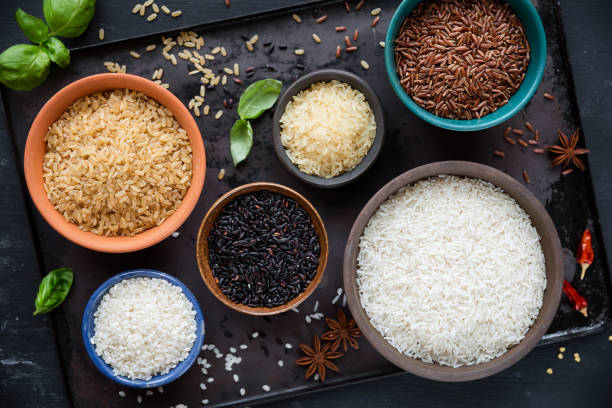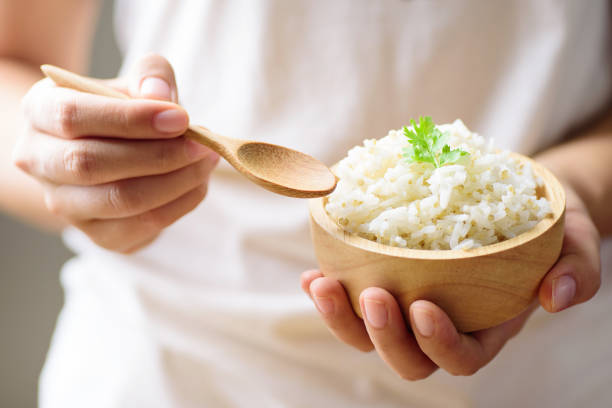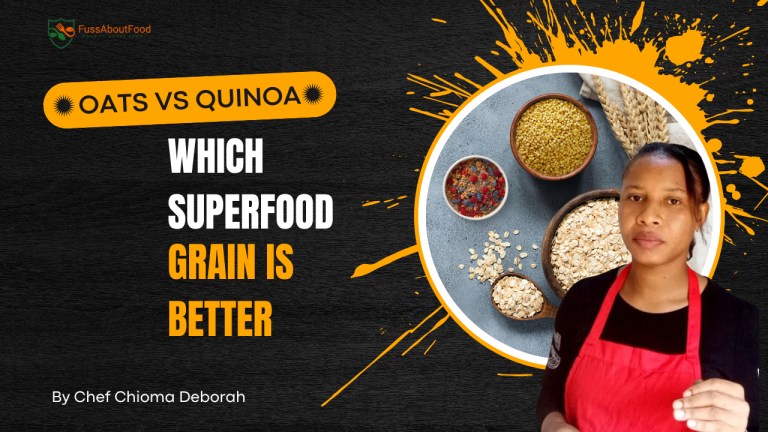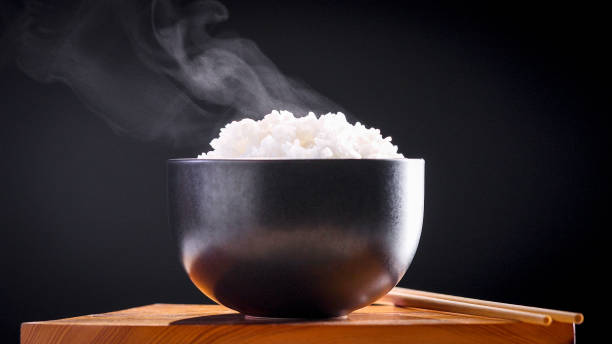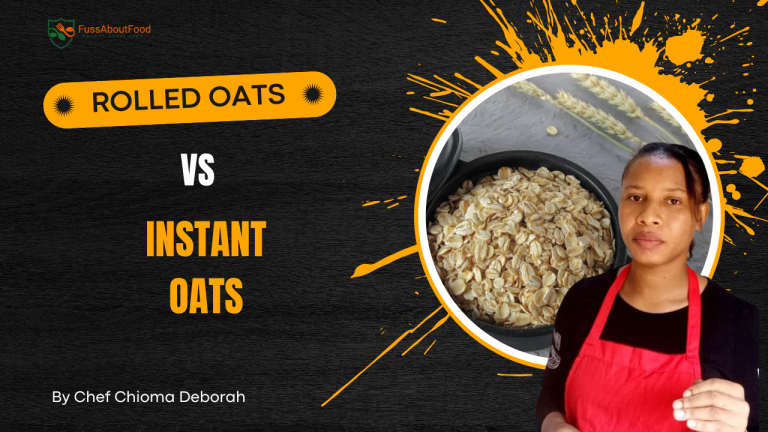Table of Contents
Is Instant Oatmeal Bad for Weight Loss?
In the quest for effective weight loss, many individuals turn to instant oatmeal as a seemingly healthy breakfast option. Oatmeal has long been celebrated for its nutritional benefits but does the convenience of instant oatmeal outweigh its potential drawbacks for those trying to shed pounds?
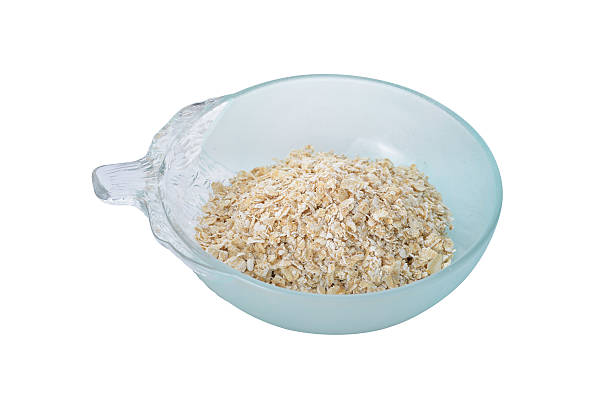
In this blog post, we will explore the pros and cons of instant oatmeal as part of a weight loss plan, providing you with the information you need to make an informed dietary choice.
Instant Oatmeal vs. Traditional Oatmeal
Before we delve into whether instant oatmeal is detrimental to weight loss, let’s distinguish between instant oatmeal and traditional rolled oats. Instant oatmeal is pre-cooked, dried, and often flavored or sweetened for quick and easy preparation.
In contrast, traditional rolled oats require longer cooking times and come in their natural form.
Here is a comparison between instant oatmeal and traditional oatmeal in tabular form:
| Aspect | Instant Oatmeal | Traditional Oatmeal |
| Preparation Time | Quick and convenient, usually 1-2 minutes in the microwave or with hot water | Longer cooking time, typically 5-10 minutes on the stovetop or in the microwave |
| Texture | Generally smoother and softer texture due to pre-cooking and processing | Typically has a heartier, chewier texture as it retains more of its natural form |
| Nutritional Value | May have added sugars and flavorings, potentially higher in sugar and sodium | Often lower in added sugars and sodium, can be customized with toppings and sweeteners |
| Fiber Content | Slightly lower fiber content compared to traditional oats | Typically higher in fiber due to less processing |
| Flavor Options | A wide variety of flavors is available, including sweet and savory options | Fewer pre-flavored options, but can be customized with toppings, fruits, and spices |
| Portability | Convenient for on-the-go or travel, as it’s easily portioned and requires minimal cooking | Less portable due to longer cooking time and potentially messier preparation |
| Cost | Often slightly more expensive per serving due to convenience | Generally more cost-effective, especially when bought in bulk |
| Customization | Limited customization options compared to traditional oats | Highly customizable with various toppings, mix-ins, and flavorings |
The Pros of Instant Oatmeal
- Convenience
One of the most significant advantages of instant oatmeal is its convenience. It’s a time-saver for those with busy mornings, making it easier to stick to a healthy breakfast routine.
- Portion Control
Many instant oatmeal packets come in pre-portioned servings, helping you control your calorie intake. This can be especially beneficial for individuals who struggle with portion control.
- Fiber Content
Instant oatmeal still retains a good amount of dietary fiber, which can promote feelings of fullness and aid in weight management.
- Micronutrients
Instant oatmeal is often fortified with essential vitamins and minerals, providing added nutritional value.
The Cons of Instant Oatmeal
- Added Sugar
One of the most significant drawbacks of many instant oatmeal varieties is their high sugar content. Added sugars can lead to increased calorie intake and hinder weight loss efforts.
- Refined Carbohydrates
Instant oatmeal is often processed and can contain refined carbohydrates that may cause blood sugar spikes and cravings later in the day.
- Lack of Texture
Some instant oatmeal options lack the satisfying texture of traditional oats, which can leave you feeling less satisfied after your meal.
Is Instant Oatmeal Bad for Weight Loss?
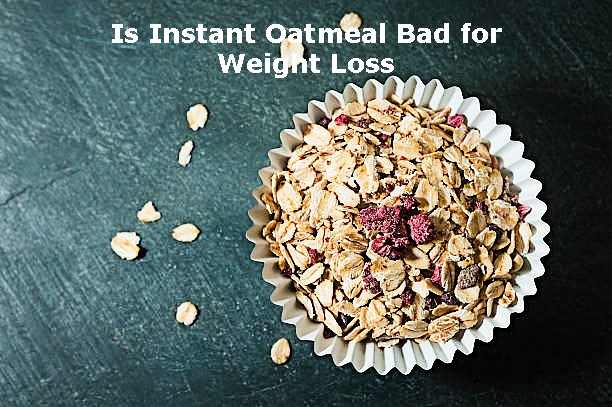
No, Instant oatmeal itself is not bad for weight loss. However, whether it supports weight loss depends on various factors, including the specific product you choose and how you incorporate it into your diet. Some instant oatmeal products may have added sugars and flavorings that can increase the calorie content, which may not be ideal for weight loss. source
To make instant oatmeal a better choice for weight loss, opt for plain or unsweetened varieties and consider adding your own healthy toppings, such as fresh fruits, nuts, or seeds. Additionally, portion control is crucial, as eating excessively large servings of oatmeal, even if it’s plain, can contribute to weight gain.
How to Make Instant Oatmeal Weight Loss-Friendly
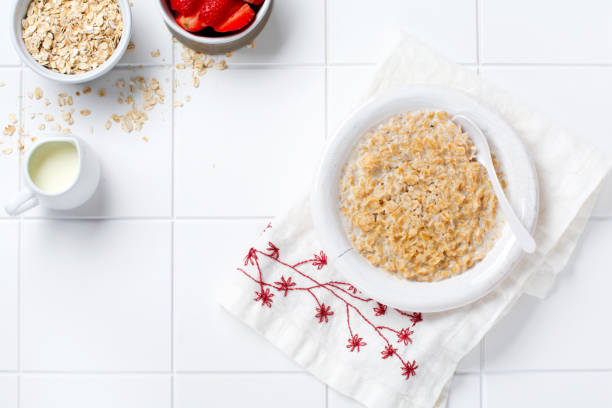
If you enjoy the convenience of instant oatmeal but want to make it a more weight-loss-friendly option, here are some tips:
- Choose Plain Variety
Opt for plain instant oatmeal with no added flavors or sweeteners. This allows you to control the sugar content.
- Add Healthy Toppings
Enhance the nutritional value of your instant oatmeal by topping it with fresh fruit, nuts, or seeds for added fiber, vitamins, and minerals.
- Check the Ingredient
Read the ingredient list carefully and avoid products with artificial additives and preservatives.
- Watch Portion Sizes
Even though instant oatmeal often comes in pre-portioned packets, be mindful of portion sizes and avoid overeating.
FAQ
Is Oatmeal Good for Weight Loss?
Yes, oatmeal can be good for weight loss, and here’s why:
Oatmeal is a nutritious whole grain that is rich in dietary fiber, particularly soluble fiber known as beta-glucan. This soluble fiber helps increase feelings of fullness and can help control appetite, which can be beneficial for weight loss. When you feel full and satisfied after eating oatmeal, you’re less likely to overeat later in the day.
Oatmeal is relatively low in calories and provides a good balance of carbohydrates, protein, and healthy fats. It also has a low glycemic index, which means it can help stabilize blood sugar levels and prevent spikes and crashes in energy, reducing cravings for unhealthy snacks.
Is Instant Oatmeal Healthy?
Yes, instant oatmeal can be a healthy choice, but it depends on various factors including the specific brand and how you prepare it. source
Instant oatmeal is typically made from rolled oats that have been pre-cooked and then dried.
Does Oatmeal Lead to Weight Gain?
No, oatmeal itself does not lead to weight gain. Oatmeal is a nutritious whole grain that is often considered a healthy part of a balanced diet. It can even support weight loss or weight management when consumed in moderation as part of a well-rounded meal plan.
Oatmeal is high in fiber, which can help you feel full and satisfied, potentially reducing your overall calorie intake. However, weight gain can occur if oatmeal is consumed in excessive amounts or loaded with high-calorie toppings like sugar, butter, or cream.
Is Quaker oats oatmeal good for weight loss?
Yes, Quaker oats oatmeal can be good for weight loss. Oatmeal is a nutritious and filling food that can help with weight loss because it is high in fiber and protein, which can help you feel full and satisfied, reducing the likelihood of overeating. Additionally, oats have a relatively low glycemic index, which can help stabilize blood sugar levels and reduce cravings for sugary snacks.
Is instant oatmeal as healthy as regular oatmeal?
Yes, instant oatmeal is generally as healthy as regular oatmeal. Both types are made from whole oats and provide similar nutritional benefits.
Conclusion – Is Instant Oatmeal Bad for Weight Loss?
In summary, instant oatmeal can be a convenient and relatively healthy option for weight loss when chosen wisely.
It offers fiber and essential nutrients but can also contain added sugars and refined carbohydrates that may hinder your progress. By making informed choices, such as opting for plain varieties and adding nutritious toppings, you can enjoy the convenience of instant oatmeal while supporting your weight loss goals.
Remember, the key to successful weight loss lies in overall dietary choices and lifestyle habits. Instant oatmeal can be a part of a balanced weight loss plan when consumed in moderation and in conjunction with other healthy foods and regular physical activity.

